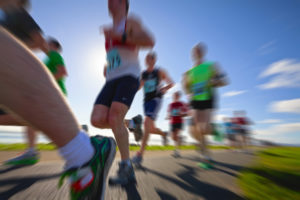Marketing practices from chiropractors often target runners from the various social media ads.
If you’ve liked any pages or shown any interest in running online, then you’ve certainly notice the influx of ads.
It’s pretty common to see local chiropractic ads that are targeting not just runners but many other fitness trends.
The fact is running can take a toll on your joints and can increase muscle pain.
The question remains…
Can Runners can benefit from regularly seeing a chiropractor?
According to an article in Runners World, a regular visit to your local chiropractor can not only help to eliminate some of the strain but also can actually help your time.
Chiropractors can help realign your range of motion improving your functionality allowing you to run with proper mechanics while preventing overuse from your joints.
Expectations from your Sports Chiropractor
On your first visit, your chiropractor will discuss your pain points, while analyzing the range of motion you have when making certain movements while placing pressure on your joints.
Then will come up with a plan for regular treatments.
The one thing to remember is making one visit, isn’t going to cut it.
You’ll need to have a plan to continue therapy.

Here’s the benefits:
- Can Improve Runner’s Knee
- Helps to eliminate pain
- Can relieve stress
- Without Drugs that have harmful side effects
- Helps with your breathing
- Can improve your time by helping you get aligned properly
Are These Sessions Recommended Before A Marathon?
Runners benefit greatly, especially before a marathon.
It’s recommended to have an adjustment the week of the marathon.
This will help you relax while simultaneously helping your body get realigned just in time for the race.
So, next time you plan to participate in the Arizona Marathon, book yourself a chiropractic session the week of the race.

